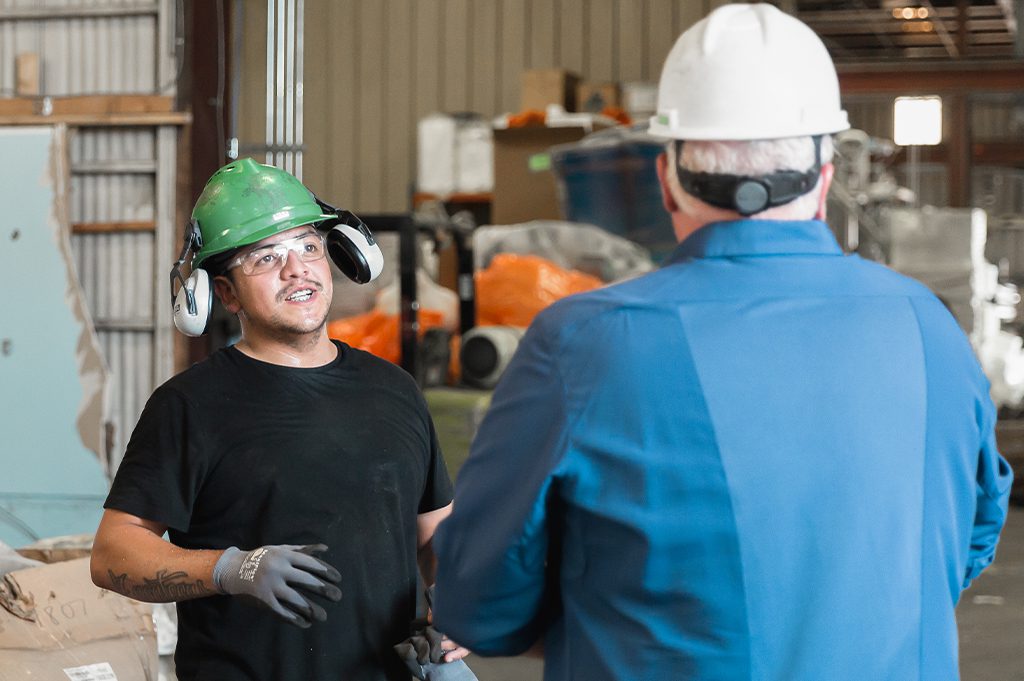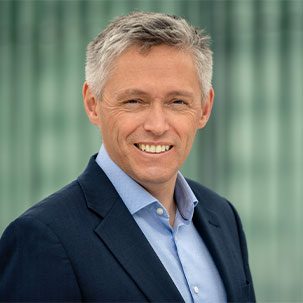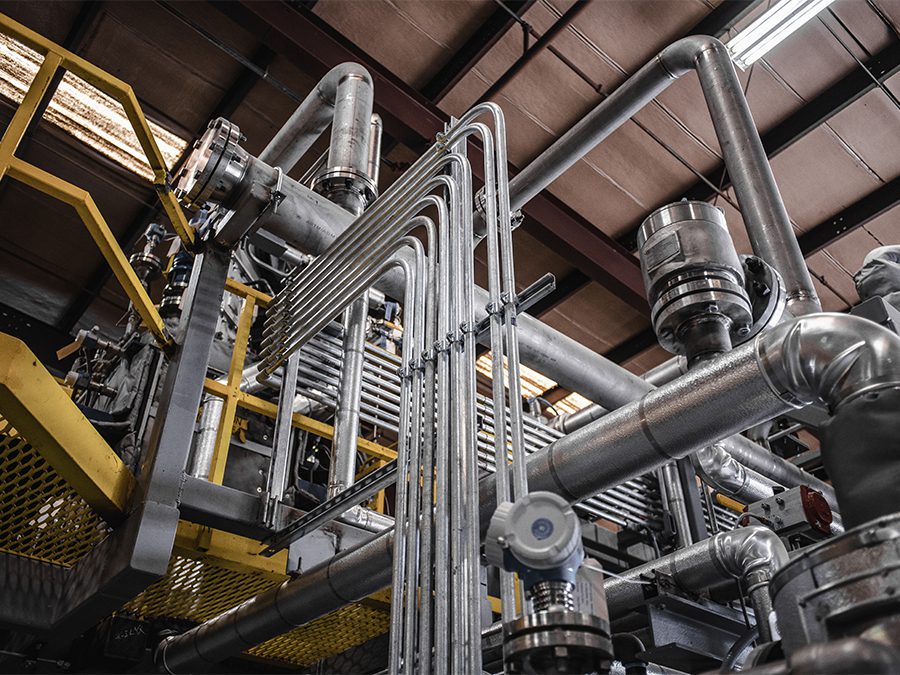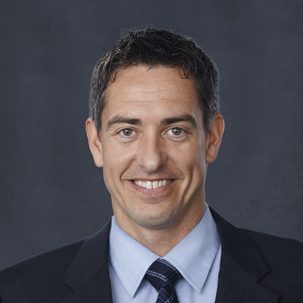PORTLAND, Oregon, USA – January 11, 2022 – Agilyx, (Euronext Growth Oslo: AGLX.OL; OTCQX: AGXXF) a technology company that enables customers to recycle the most challenging post-use plastics to high value, virgin-equivalent products and Toyo Styrene Co., LTD (“Toyo Styrene”), an affiliate of Denka Company Limited, Nippon Steel Chemical & Material Co., Ltd. and Daicel Co., Ltd., announced today they are entering into the construction phase of a 10 ton per day chemical recycling facility in Japan, enabled by Agilyx depolymerization technology.
The recycling plant will convert post-use polystyrene into a styrene monomer that will be purified using Toyo Styrene’s proprietary purification process. Styrene monomer produced from this process can then be converted back into high value polystyrene products which bear a significantly lower carbon footprint than similar products made with virgin monomer.
“As the first step toward the circular economy, we will construct a chemical recycling plant for this project, collect post-industrial materials for the time being, and start a chemical recycling business.” said Sanshiro Matsushita, President of Toyo Styrene. “Furthermore, in order to build a carbon free society through chemical recycling in Japan, we are also planning to participate in a platform that integrates citizens, businesses, and local government, which is being undertaken by Ichihara City, Chiba Prefecture.”
“The decision to move into the final stages of this project is a big accomplishment for the members of Agilyx and Toyo Styrene who have worked tirelessly to bring us to this point,” stated Tim Stedman, CEO of Agilyx. “We are very proud of their efforts and excited for the opportunity to bring our proven advanced recycling technology into the Asian markets to help improve the availability of recycled plastic content and increase global plastic recycling through circular pathways.”
Contacts
Kate Ringier
VP, Communications & Government Affairs
+ 41 43 883 0396
kate.ringier@agilyx.com
Toyo Styrene
Hiroshi Higuchi, Executive Officer, the office manager, environmental measures promotion office, Toyo Styrene Co.,Ltd.
+81-3-3519-5602
h-higuchi@toyo-st.co.jp
About Agilyx
Agilyx is a technology company that enables customers to recycle difficult-to-recycle post-use plastics to high value, virgin-equivalent products. With a focus on diversion and conversion of plastic waste, Agilyx is uniquely positioned with a molecular recycling technology offering and an integrated feedstock solution by way of Cyclyx, an innovative feedstock management consortium of partners that drives up global plastic recycling rates by chemically fingerprinting plastic waste and matching it to appropriate recycling processes. Agilyx was the first to establish a commercial scale closed loop plastic-to-plastic chemical recycling facility and holds over 17 patents. Agilyx conversion technology utilizes pyrolysis without a catalyst and can convert mixed waste plastic to naphtha and fuels or depolymerize specific plastics such as polystyrene and PMMA (acrylic) back into virgin-quality products. Learn more at www.agilyx.com.
About Toyo Styrene
Toyo Styrene was established in April 1999 as a company of consolidated polystyrene business carved out from Denki Kagaku Kogyo Kabushiki Kaisha (Current: Denka Co., Ltd.), Nippon Steel Chemical Co., Ltd. (Current:NIPPON STEEL Chemical & Material Co., Ltd.),and Daicel Chemical Co.(Current:Daicel Corporation). Since then, Toyo Styrene has been developing constantly the new high performance grade for answering the needs of customers such asEX7, HMT1, GA, Eneryts and FR-PS as well. For more information, follow us on social media and visit us at www.toyo-st.co.jp.
Circular materials are the talk of the town, and with good reason. The extraction of virgin materials currently causes roughly half of greenhouse gas emissions globally. Annual waste generation is projected to increase 70% by 2050. Slowing the extraction of virgin materials and building sustainable, long-lasting products is therefore vital to relieve pressure on our planet.
As we know, the decoupling of economic growth from virgin-material resource use will require mainstream economic players to make a decisive contribution to the circular economy. This is a shift we are starting to see, as both businesses and governments begin to create the right conditions for scale.
Europe’s recent proposal for its revised Waste Shipment Regulation, which would see significant restrictions on non-hazardous waste exports, is an encouraging move to help all of us consider waste differently. The molecules within waste – specifically plastic waste – are a precious above ground resource which should be stewards of.
The other part of this puzzle is of course our ability to treat, manage and recycle this waste. And the question top of mind here is, are we making full use of our recycling capabilities to keep valuable materials in a closed-loop economy?
With about 90% of plastic unrecycled globally, current data on our recycling levels would suggest there is some way to go to reduce that number to just 10%. The good news is that the scalable technology is out there to address this.
We need to talk about plastic waste as a valuable above ground resource
To dig a little deeper into the issues around recycling our waste, we first need to complete the shift in the way we view it. Moving away from the general practice of dismissing plastic as the original sin for environmental pollution, let’s look at how we manage the existing waste on our planet to maintain its original use and value.
It is by creating a more efficient and effective waste management system that we can extract waste’s value and shift the popular perception that plastic waste is not just what we discard, it is an unexploited above ground resource.
Today’s waste management system is highly fragmented across Europe. As national rules developed in silos, conflicting interpretations and applications of waste classification have evolved, often resulting in poor separate collection.
A harmonized process for waste classification, such as the EU’s Waste Shipment Regulation proposal on contamination thresholds, and effective separate collection can ultimately help us increase the quality and quantity of recycled plastics. It is a matter of collective will.
Addressing the plastics problem will require the support and participation of the entire value chain, with the ultimate goal of creating a new stream of virgin-equivalent materials for new products.
Agilyx has been at the core of the creation of a new consortium, Cyclyx, which is one example of how we can build the infrastructure to create this circular industry to recapture post-use plastics that would otherwise be lost to landfill or incineration. Through a network of partners, Cyclyx provides the missing link to bridge the gap between waste collector and recycler.
Our technology characterizes and qualifies plastic waste using proprietary algorithms and an extensive database of chemical compounds built over 17 years to aggregate and pre-process large volumes of post-use plastic, preparing it for recycling pathways.

We need incentives for front-runners developing state-of-the-art recycling technologies
Whilst still a nascent industry, advanced recycling technologies needed to convert post-use plastic back into its original form are out there. We’re starting to see major European markets make commitments to continue investing in these solutions.
France has recently pledged to invest in new recycling infrastructure and plastic-to-plastic recycling solutions and the newly formed German government has signaled it also intends to make new recycling technologies a key priority as part of their packaging law.
Whilst encouraging to see the issue of waste start to move up the political agenda, these commitments are just the tip of the iceberg in terms of the funding needed to tackle the way in which waste is managed and treated.
We need the full spectrum of technological solutions to get our plastic recycling rates up to 90%. Existing recycling technologies such as chemical and mechanical recycling need to go hand in hand, there is no one size fits all solution. Each plastic has its own composition and code with different solutions that fit each type.
Agilyx has developed chemical recycling technologies in order to transform plastics previously thought to be non-recyclable into a range of new circular products. Our technology is uniquely positioned as a viable and more sustainable alternative to landfilling and incineration of difficult-to-recycle post-use plastic waste.
If we are serious about fulfilling our circular economy ambitions and creating a clear pathway to reducing pollution on the planet, we’ll need all these recycling innovations and more to transform our waste into fully circular materials.

Authored by
Tim Stedman, CEO Agilyx
Mr. Stedman has nearly 30 years of experience in the chemical industry covering plastics, elastomers and basic chemicals, such as olefins. He has held positions in operations, sales and marketing, global supply chains, business leadership as well as strategy and corporate development.
PORTSMOUTH, New Hampshire, USA, December 15, 2021 – Cyclyx International, a consortium-based plastic feedstock management company with a mission to increase the recycling rate of plastic from 10% to 90%, has announced it is developing a first of its kind plastic recovery facility to process waste plastics for committed offtake associated with advanced recycling projects on the Gulf Coast, such as the Baytown, Texas project recently announced by ExxonMobil.
Engineering work has already begun on the proposed facility. The facility is expected to process up to 60,000 metric tons of recycled plastic feedstock per year with an anticipated start-up in late 2022. Cyclyx plans to develop a network of similar facilities, linked to committed offtake, to support growth in advanced recycling.
With its unique knowledge of plastic chemical characterizations, Cyclyx is designing the proposed facility to allow for processing of waste plastic feedstock customized to meet the needs of individual customer specifications. Cyclyx will source post-use mixed waste plastic for the project via a range of existing sources while continuing to expand its collaboration with companies from across the value chain to develop circular solutions for difficult-to-recycle plastic waste.
“We are excited to launch this phase of the Company’s growth strategy,” stated Joe Vaillancourt, CEO of Cyclyx. “The development of these customized plastics recovery facilities is critical in meeting the growing needs of advanced recyclers and is a big step forward toward our mission of helping increase the plastic recycling rate from 10% to 90%.”
Contacts
Kate Ringier
VP, Communications & Government Affairs
+ 41 43 883 0396
kate.ringier@agilyx.com
About Cyclyx International, LLC.
Cyclyx International, LLC. (“Cyclyx”) is a post-use plastic feedstock management company working with a broad set of industry participants to develop innovative recycling solutions for all types of post-use plastics. The company’s mission is to increase the recycling rate of plastics from 10% to 90% by using Cyclyx’s expertise in understanding the chemical composition of post-use plastic in collaboration with industry partners to create a new, innovative supply chain. Cyclyx was founded by Agilyx Corporation (“Agilyx”), a leader in advanced chemical recycling, together with ExxonMobil Chemical Company, one of the largest chemical companies in the world. Cyclyx has been formed to be a consortium-based entity and since its founding there have been a growing number of companies joining its membership. For more information, visit us at www.cyclyx.com.
There is no silver bullet to solve the issue of plastic waste but the benefits of chemical recycling can help foster a more circular economy
Much has been said about reducing or eliminating plastic but utilizing and scaling the technology available to create a more circular economy that turns waste to value could be a better solution.
Industry will often talk about ‘closing the loop,’ but what do we really mean?
As the world’s population grows, it is inevitable that our plastic consumption will also increase. Some of the latest modelling from the International Energy Agency has said that plastic production could grow from 359 million tons in 2018 to 540 million by 2040. The challenge for us all – consumers, corporations and governments – is to ensure that this increased use of plastic does not lead to 540 million tons of plastic waste polluting our environment.
The solution is not to ban plastic outright, but to shift how we view, treat and manage plastic in our lives and supply chains. We must give it much greater value and see it not as just a throwaway commodity, but something that can be used, recycled and made into a new product. In turn this will create a circular economy by making sure that plastic which is no longer needed is collected and recycled again and again. This is closing the loop.

To solve the issue of plastic waste, we must highlight and embrace the technology that exists.
First however, we, as consumers and businesses, must accept this challenge. At present, less than 10% of the world’s plastic is recycled. A shocking 90% therefore ends up in landfill, is incinerated or worse still, pollutes our rivers, oceans and natural environment.
Despite significant advances over the years in recycling technology, participation at both consumer and corporate levels have struggled to keep pace. This is in part due to a lack of understanding about the technology, as well as the level of support and investment needed in the infrastructure.
Chemical recycling technology is already deployed around the world, saving a significant amount of waste from ending up in landfill and polluting our environment.
Chemical recycling has long been thought of as either too expensive or not scalable enough to create a fully closed loop circular system that everyone from businesses to consumers can benefit from.
At Agilyx, we’re currently on our seventh generation of chemical recycling technology and lead the industry with the first commercial-scale plastic-to-plastic recycling facility in Regenyx, our joint venture with Americas Styrenics (AmSty). With this technology we have recently passed a significant milestone having recycled more than 4,400 tons of post-use plastic. That’s the equivalent of nearly 20 Statues of Liberty since our launch!
Developed over more than a decade and a half, our technology can be easily scaled and applied to any number of chemical pathways to meet the requirements of our partners via our licensing model, so that more and more companies and consumers have access to leading recycling solutions for a variety of plastics.
This is significant because it enables us to turn some of the hardest to recycle and most contaminated post-use plastic back into its chemical building blocks, able to be transformed into high-grade applications such as food packaging or pharmaceutical products.
As proud as we are of our technology, we know we can’t do it alone. There are a number of chemical recycling and mechanical recycling technologies in existence today and it will take a combination of all of them in order to address the problem of plastic waste on a global scale. However, obtaining reliable sources of post-use plastic to be recycled is a long-standing barrier for the industry. Our joint venture, Cyclyx, is a consortium of companies working together to increase collection efforts in order to address this issue and get post-use plastic out of landfills and the environment and back into a circular economy.
If we want to truly conquer this issue, we must all work together to make it happen.

Closing the loop brings a range of benefits beyond finding a new purpose for converted plastic waste.
While many see the obvious benefits of recycling more, such as taking waste out of our environment and giving it new higher value uses, advancements and efficiencies in recycling technologies mean there are many additional benefits to creating a more circular economy.
Green investment in the industry will create new jobs and support innovation and wider improvements across the sector.
Chemical recycling also helps dramatically reduce the emissions from producing new plastic products, given the high energy levels needed to extract virgin raw materials. In fact, a recent life cycle analysis (LCA) of our depolymerization technology shows a 75% reduction in CO2-emissions over the production of ‘new’ plastic and incineration.
Companies are now having to consider their net impact on the world and face a constant battle with reducing their emissions. By increasing recycling rates or choosing to source or produce products and packaging from recycled materials, they can dramatically reduce their overall emissions.
We are all too aware of the impact plastic waste has around the world, but the solutions exist to better manage and convert it back into valuable products again. We must embrace the challenge and champion the technology. Moving to a fully circular economy is by no means easy, but if we capitalize on the progress and systems already in place, we’ll be much closer to making it a reality.

Authored by
Carsten Larsen, Chief Commercial Officer
Carsten Larsen is Chief Commercial Officer at Agilyx. An experienced commercial leader, Mr. Larsen brings more than 25 years of industrial expertise, most recently having served as commercial director, Plastics Circularity EMEA & APAC for Dow Inc.

Full production scale trial successfully proves technology for depolymerizing acrylic
TEESSIDE, England and OSLO, Norway, December 8, 2021 – Mitsubishi Chemical Methacrylates (MCM) and partner, Agilyx Corporation (OSE: AGLX), a wholly owned subsidiary of Agilyx AS (Euronext Growth (Oslo): “AGLX”) and a pioneer in the chemical recycling of post-use plastics, announced today the successful results of a full-scale production trial for polymethyl methacrylate (PMMA; commonly called acrylic) depolymerization at Agilyx’s facility in Tigard, Oregon.
The full-scale trial, conducted in August 2021, returned results consistent with the successful results of a laboratory-scale trial conducted in 2020. A mixed feedstock included both cast and extruded PMMA sheet, and the effects of different temperature settings were analysed to find the optimal conditions for PMMA pyrolysis.
Following the successful plant trial, experts from MCM and Agilyx met to build an action plan that sets out the required next steps.
“The results at full production scale are very encouraging,” said David Smith, circular economy programme lead, Mitsubishi Chemical Methacrylates. “The teams at both MCM and Agilyx worked very well together, and all parties are excited at the prospect of building a new PMMA depolymerization plant using Agilyx technology.”
“The results of our PMMA trials in Tigard have been very positive,” stated Carsten Larsen, CCO of Agilyx. “We’ve proven that Agilyx technology is capable of turning PMMA back into its original monomer, MMA, creating a truly circular material. We’re excited to continue our collaboration with Mitsubishi Chemical Methacrylates.”
The crude MMA produced during the plant trial is currently being distilled at MCM’s pilot plant in Wilton, England and will be used both for internal product development and to validate the purification solution that will be used in this process.
For further information, contact:
Scott Neal – Communications Specialist, Mitsubishi Chemical Methacrylates
Tel: +44 (0)1642 735066
scott.neal@m-chem.com
David Smith – Circular Economy Programme Lead, Mitsubishi Chemical Methacrylates
Tel: +44 (0)7885 239742
david.smith@m-chem.com
Kate Ringier – VP, Communications and Government Affairs, Agilyx
Tel: + 41 43 883 0396
kate.ringier@agilyx.com
About Mitsubishi Chemical Methacrylates
Mitsubishi Chemical Methacrylates (MCM) is the global Methacrylates Division of Mitsubishi Chemical and the world’s largest producer of methyl-methacrylate (MMA). With manufacturing sites, sales offices and distribution networks throughout Asia, the Americas and Europe, MCM creates products that improve the quality of life around the world, every single day. Learn more at www.mcc-methacrylates.com.
About Agilyx Corporation
Agilyx (AGLX) is an early leader in the advanced recycling of difficult-to-recycle post-use plastics. With Agilyx’s chemical recycling technology, mixed plastic waste or streams of discrete post-use plastics, such as polystyrene, can be converted to new virgin-equivalent plastics, as well as chemical products and fuels – creating the opportunity for true circularity. The company has not only developed these first-to-market products but has also developed a feedstock management company, Cyclyx International, LLC, and is partnering with a range of waste service providers, municipalities, petrochemical, and brand and retail companies to develop closed-loop recycling solutions for mixed waste plastics. www.agilyx.com.
TIGARD, Oregon, USA – September 13, 2021 – Agilyx Corporation (AGLX), a wholly owned subsidiary of Agilyx AS (Euronext Growth (Oslo): “AGLX”) and a pioneer in the chemical recycling of post-use plastics has been granted a patent continuation for its process of breaking down waste polystyrene into its chemical building block, styrene monomer. The continuation of US patent number 11,041,123 further confirms Agilyx’s depolymerization technology extends to the breaking down of all waste plastic polymers into their respective discrete monomers and is not only limited to polystyrene. This patent demonstrates the versatility of Agilyx’s innovation portfolio while continuing to advance its position as a leader in the depolymerization of waste plastics.
“This patent continuation demonstrates the robustness and versatility of the Agilyx technology, not restricting our claims to polystyrene to styrene monomer; thereby, expanding our patent coverage to depolymerization of polymers back to the monomer level, enabling greater circularity for more plastics,” stated Dr. Chris Faulkner, CTO at Agilyx. “Essentially, our process has not changed. We are using the same technology on the same machinery, though it may be operated in a slightly different way depending on the polymer. The recognition that this technology applies to a broader range of polymers is an exciting advancement in our mission to increase recycling and circularity of post-use plastics.”
Contacts
Kate Ringier
VP, Communications & Government Affairs
+ 41 43 883 0396
kate.ringier@agilyx.com
About Agilyx
Agilyx (AGLX) is an early leader in the advanced recycling of difficult-to-recycle post-use plastics. With Agilyx’s chemical recycling technology, mixed plastic waste or streams of discrete post-use plastics, such as polystyrene, can be converted to new virgin-equivalent plastics, as well as chemical products and fuels – creating the opportunity for true circularity. The company has not only developed these first-to-market products but has also developed a feedstock management company, Cyclyx International, LLC, and is partnering with a range of waste service providers, municipalities, petrochemical, and brand and retail companies to develop closed-loop recycling solutions for mixed waste plastics. www.agilyx.com.
TIGARD, Oregon, USA – August 23, 2021 – Agilyx Corporation (AGLX), a wholly owned subsidiary of Agilyx AS (Euronext Growth (Oslo): “AGLX”) and a pioneer in the advanced recycling of post-use plastics and Kumho Petrochemical, a global leader in the manufacture of synthetic rubber, have announced a collaboration to explore the development and construction of a chemical recycling project in South Korea.
“We’re very interested in recycling of post-use plastics, while focusing on utilizing post-use polystyrene into the pure styrene,” stated Jong-Hoon Baek, CEO of Kumho Petrochemical. “Collaboration with Agilyx will give Kumho Petrochemical an opportunity of proposing new line of eco-SSBR products to most of our customers who prefer sustainable products.”
“We are pleased to partner with Kumho Petrochemical to explore this project and expand the market for post-use recycled polystyrene into new, high growth and technically demanding applications such as this,” stated Tim Stedman, CEO of Agilyx. “The potential to use waste plastic to create high performance SSBR for the manufacture of tires is a very exciting example of our technology’s ability to create a new life for plastic.”
The project will use Agilyx unique and novel chemical recycling technology to produce pure styrene from post-use polystyrene. This would be used as a virgin equivalent raw material to produce solution styrene-butadiene rubber (SSBR), a key component for the manufacture of tires, including for the large volume, high-performance tire segment. The project would mark an exciting new application of Agilyx’s polystyrene depolymerization technology, introducing a new pathway for polystyrene into SSBR.
About Agilyx
Agilyx (AGLX) is an early leader in the advanced recycling of difficult-to-recycle post-use plastics. With Agilyx’s chemical recycling technology, mixed plastic waste or streams of discrete post-use plastics, such as polystyrene, can be converted to new virgin-equivalent plastics, as well as chemical products and fuels – creating the opportunity for true circularity. The company has not only developed these first-to-market products but has also developed a feedstock management company, Cyclyx International, LLC, and is partnering with a range of waste service providers, municipalities, petrochemical, and brand and retail companies to develop closed-loop recycling solutions for mixed waste plastics. www.agilyx.com.
About Kumho
Kumho Petrochemical, founded in 1970 and possessing the largest synthetic rubber manufacturing capacity in the world, is doing businesses in various fields, such as synthetic resins, specialty chemicals, nanocarbon, energy, and building materials. The company manufactures synthetic rubber products using butadiene and styrene, etc., as raw materials. Along with synthetic rubber, synthetic resin, which is used in plastics and building materials, is one of the company’s major areas of business. In announcing the new vision of a “Solution Partner Creating Our Common Future With Value Beyond Chemistry” in 2020, the company is focusing on enhancing its competitiveness and creating sustainable value by taking a broad, long-term view of the future.
www.kkpc.com/eng/
Agilyx Contact
Kate Ringier
VP, Communications & Government Affairs
+ 41 43 883 0396
kate.ringier@agilyx.com
Kumho Contacts
David Jeong
Assistant Manager, Public Affairs Team
+82 10 6348 6385
whjung15@kkpc.com
Lee, Suk Yul
Staff, Public Affairs Team
+82 10 7196 3442
leesy3442@kkpc.com